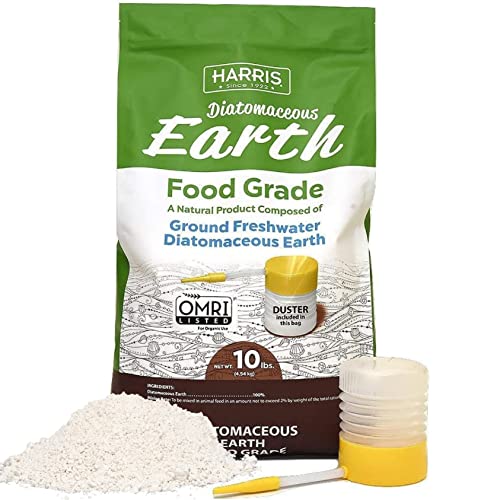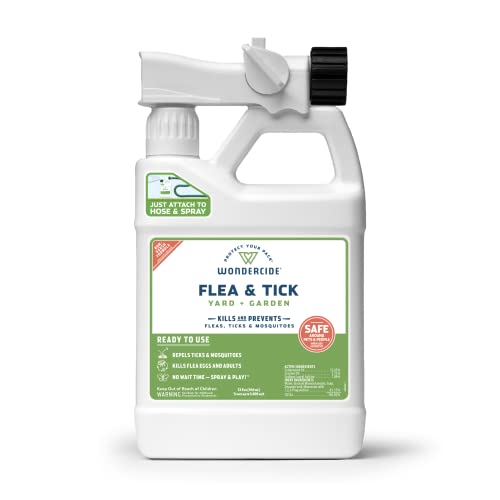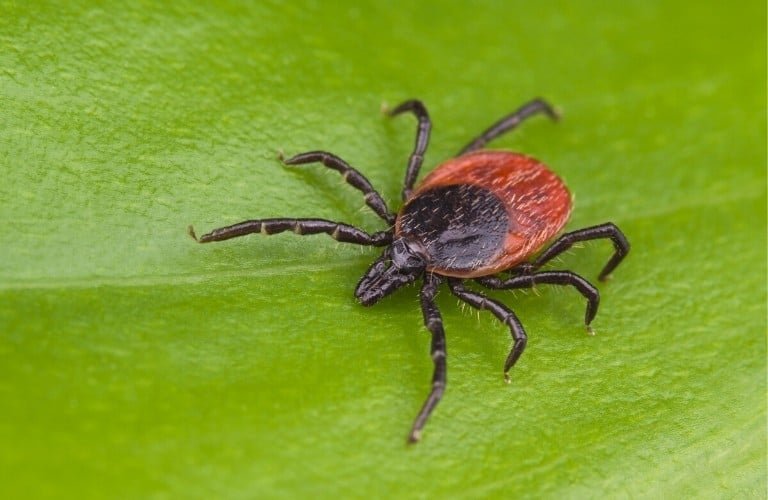Ticks latch onto hosts, whether they’re animals or humans, and feed on their blood.
They’re dangerous because they can transmit diseases such as Lyme disease. Surely they’re prey to some kind of predator, right?
What eats ticks? Several animals and insects are known to eat ticks, including chickens, ants, spiders, birds, opossums, and lizards. However, they shouldn’t be considered tick control methods since predators become hosts themselves and may increase the tick population.
In the following you’ll discover which animals do indeed eat ticks and learn whether or not they can contribute as a form of pest control.
We’ll also show you your options when it comes to dealing with an outdoor tick problem in your yard.
What Animals Eat Ticks?
Amphibians and Reptiles
Amphibians and reptiles, like frogs and lizards respectively, will eat ticks. However, ticks aren’t a staple of their diets, so they likely won’t make a dent in the tick population.
Frogs and toads usually like to eat bigger critters like snails and worms and will prefer them over small bugs.
It was once thought that the Western fence lizard was a good form of pest control since their blood contains a protein that kills Lyme disease in ticks, but a recent study disputes that.
The scientists assumed that fewer lizards meant more ticks, but fewer lizards actually lowered the tick population because the ticks didn’t latch onto a new host and died.
Birds and Poultry
Most birds and poultry like to eat ticks, including chickens, turkeys, guinea fowl, and pigeons.
Chickens are frequently recommended for those who have a lot of ticks in their backyard or property, but they’re not actually that helpful.
Chickens will eat a variety of bugs, so that means ticks are only a small part of their diet. They’re not guaranteed to eat every last tick, especially if they have other foods to eat.
Chickens and other birds are good hosts for ticks since they’re low to the ground and like to roam grassy areas.
A bird is more likely to pick up ticks than eat them all, so you’re actually making a tick situation worse when you introduce birds to the area.
Do you know the symptoms associated with a tick bite and what to do if you are bitten? Find out here.
Other Bugs
There are several bugs that will eat ticks, but that, of course, means that you have to let insects roam your yard to be effective.
Ants and spiders are the bugs that most frequently eat ticks, but they can cause plenty of problems themselves.
Fire ants are more likely to eat ticks than other ants. If you let these dangerous ants into your yard, be careful.
They have their name for a reason – their bites hurt! They’ll also colonize very quickly and can take over a backyard.
(Learn how to win your battle against ants here.)
Spiders are actually very beneficial creatures. The only problems they may pose are the possibility of biting and scaring people.
Their webs capture a variety of different insects that they then eat.
They’re good to keep around if you have ticks and flies all over your yard. Just be cautious if you spot a poisonous spider.
Rodents
Rodents are known for being the culprit of a tick infestation, but did you know that they eat ticks too?
Mice, rats, and squirrels will eat bugs from time to time. It’s not their first choice, but they will snack on ticks.
However, rodents do more harm than good when it comes to ticks. They live in the same areas that ticks like to live and breed, so the two are almost always found together.
If a curious rodent finds their way into your yard or home, they’re bringing their stowaway ticks with them, and that’s how infestations begin.
Opossums
Opossums are incredibly misunderstood animals. They’re not rodents – they’re marsupials.
However, they’re mistaken as rodents frequently enough that most people probably think of opossums when they think of rodents.
Regardless of the technicalities, opossums eat ticks, and they eat quite a few of them. One opossum is estimated to eat around 5,000 ticks each spring and summer.
Imagine if your neighborhood has a family of five or six opossums running around – that’s a lot of ticks!
Opossums also eat a multitude of other pests like roaches, snails, and rats.
They tend to root around garbage cans which is why people don’t like them much, but they’re actually helpful little creatures.
But can’t they be hosts? They can, but they’re very clean animals so they frequently groom themselves and remove and eat ticks that latch onto them.
You have a lower chance of getting ticks if you come into contact with an opossum than you do with other animals.
If you are bitten by a tick, removing it carefully with tweezers is the recommended method. However, there are other ways to remove the pests. Learn how here.
How to Battle a Tick Infestation Outside
If you’re wondering what eats ticks, you’re probably looking for a solution to a tick infestation. There are plenty of ways you can take care of an infestation.
Just be sure to remember to protect yourself by using a spray repellent until the situation is resolved.
In our article “Best Tick Spray for Humans” we show you the most effective repellent options available today.
Keep in mind that the following solutions will, of course, be most effective when applied during the times of the year when ticks are most active.
Remove Hosts
Tick hosts are usually rats, mice, and stray animals.
You can deter these animals from settling in your yard by removing debris, mowing grass, and making sure you don’t keep attractants around.
If your pet is a host, check for ticks daily, bathe them frequently, and keep track of where they go outside.
If they like to rest or hide in shaded areas with tall grass, it’s possible that ticks are jumping off of your pet and multiplying.
Consider Possible Allies
Opossums and spiders are some of the most beneficial tick eaters you can let live in your yard.
Consider their downsides though: opossums tend to dig around trash cans and spiders can be poisonous.
Spiders are hardly efficient when compared to opossums, and opossums can be annoying “rodents” that disturb homeowners.
Natural Pest Control
There are many natural methods you can choose to repel and kill ticks in your backyard. They’re quick and easy to use and won’t cause any harm to your plants.
The only thing you really have to worry about is having allergic reactions to natural ingredients, so you’ll need to check the ingredient list first.
There’s really no reason to treat every square inch of your property. Focus on areas where ticks like to hide and wait for hosts to pass by.
You’ll find a list of places ticks are typically found in this article.
Neem Oil
Neem oil can be applied to plants and soil to repel and kill insects of all kinds.
It will repel ticks, so you can apply it to bushes and tree trunks or other plants in areas where you find ticks the most.
Neem Bliss Organic Pure Neem Oil is ideal because it is not diluted with water or filler oils, is listed for organic use, and is cold pressed to retain the most beneficial properties.
Diatomaceous Earth
Spread this powder over the ground, and the tick population should decrease within a few days. It cuts open their exoskeletons and causes them to dehydrate.
It’s a slow solution, but highly effective. Keep in mind it only kills the ticks that walk on it.
This Food Grade Diatomaceous Earth is safe to use around animals, so it’s great to use if you have household pets, horses, or chickens.
Outdoor Tick Spray
We recommend Wondercide Natural Flea & Tick Spray because you spray it in your yard with the help of a garden hose and it’s immediately safe to re-enter the area.
You might get a little wet if you don’t wait, but it’s safe to use around kids and pets.
Pesticides
Pesticides are harmful since they contain toxic chemicals. They can harm humans and animals and even the environment.
If you do choose to use a pesticide, be sure to read the instructions on the label carefully.
A low-impact pesticide is Thermacell Tick Control Tubes. Mice take the pesticide-infused cotton out of the tubes and put it in their nest, which then kills the ticks.
You can also call an exterminator if you’d like to use pesticides but want to make sure they’re handled and applied safely and accurately.
Check out our complete guide – How To Get Rid of Ticks to learn important tick prevention techniques and elimination guidelines.
Final Thoughts
Lots of animals and insects eat ticks, but don’t expect to use them as a form of pest control.
They might take care of a few ticks in your backyard, but they can actually boost the population of ticks and cause the problem to spiral out of control.
As you treat your yard for ticks, be sure you know what kind of critters take shelter near your home, and make sure they aren’t able to get inside.
The more you know about ticks, their habits, and how they can impact your health, the better prepared you’ll be to keep yourself and your family safe.
Be sure to visit our tick page to learn all about these creepy parasites and what you can do to eliminate them from your yard and protect yourself when in tick-infested areas.







